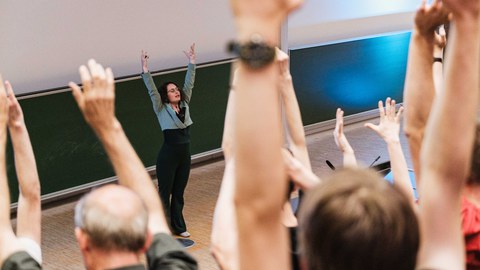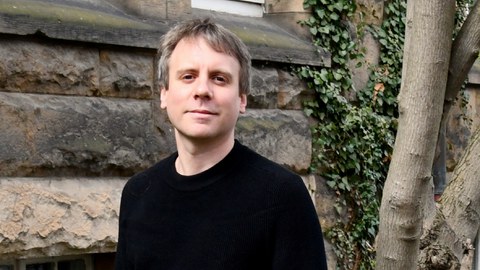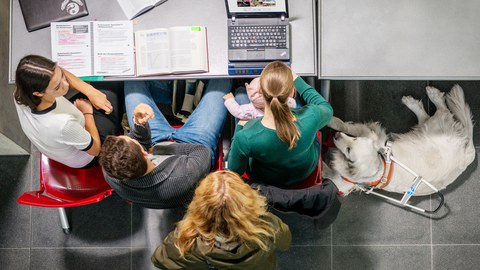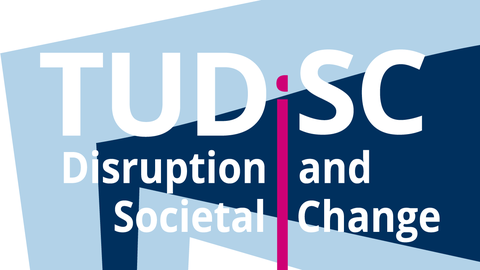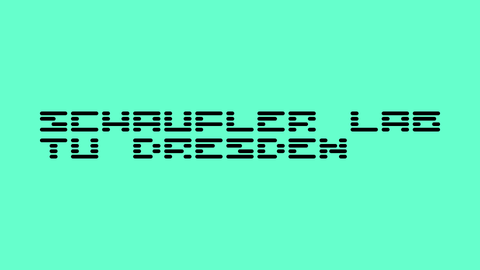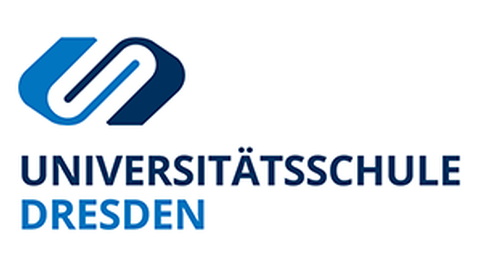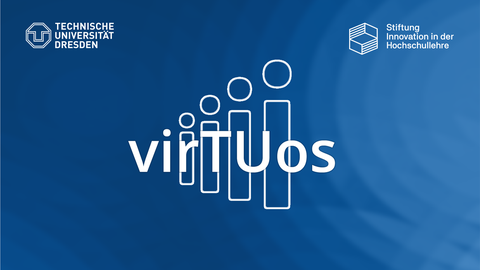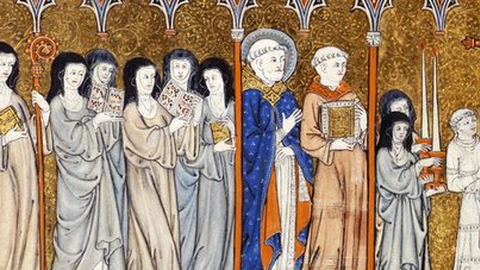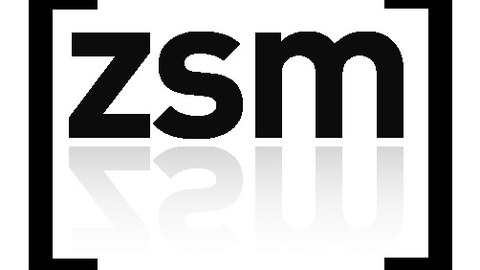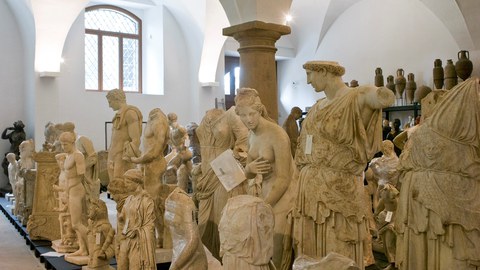 © TU Dresden
© TU Dresden
Vielfalt ist unsere Stärke
Der Bereich Geistes- und Sozialwissenschaften (GSW) an der Technischen Universität Dresden umfasst eine Vielzahl von Disziplinen, die Gesellschaft, Kultur und Bildung aus unterschiedlichen Perspektiven erforschen, gestalten und weiterentwickeln.
Vielfalt ist unsere Stärke: Die thematische, methodische und kulturelle Breite in Studium, Lehre und Forschung macht den Bereich zu einem offenen und kreativen Ort an der TU Dresden. Unterschiedliche Disziplinen, Perspektiven und Ansätze treffen hier aufeinander und beschäftigen sich mit Fragestellungen und Lösungen für die Herausforderungen unserer Zeit. Unser Ziel ist es, für Studierende, Forschende und Lehrende ein Umfeld zu schaffen, in dem Vielfalt nicht nur wertgeschätzt, sondern aktiv gefördert wird – sei es durch die breite Auswahl an Studienrichtungen, die interdisziplinäre Ausrichtung unserer Projekte, die enge internationale Zusammenarbeit oder die unterschiedlichen Erfahrungen, Perspektiven und Talente aller Beteiligten.
Zum Bereich gehören die Fakultät Erziehungswissenschaften, die Philosophische Fakultät sowie die Fakultät Sprach-, Literatur- und Kulturwissenschaften. Das Studienangebot erstreckt sich über Erziehungswissenschaft, Sozialpädagogik, Geschichte, Philosophie, Politikwissenschaft, Soziologie, Kommunikationswissenschaft, Property and Data Law, Theologie, Kunstgeschichte, Anglistik/ Amerikanistik, Romanistik, Klassische Philologie und Slavistik. Innovative Kombinationsmöglichkeiten und moderne Studiengänge wie „Geistes-, Kultur- und Sozialwissenschaften“, „Internationale Beziehungen“ oder „Digital Humanities“ eröffnen vielfältige Bildungswege und Karriereperspektiven.
Forschung und Lehre sind durch Interdisziplinarität, Internationalität und Praxisnähe geprägt. Im Fokus stehen zentrale Fragen der Gegenwart – von Bildungsprozessen über gesellschaftlichen Wandel/ Transformation bis hin zu Medien und Kultur im globalen Kontext. Ziel ist die Generierung von Wissen, um gesellschaftliche Herausforderungen verstehen, reflektieren und aktiv mitgestalten zu können. Insbesondere im Potenzialbereich „Gesellschaftlicher Wandel“ als Maßnahme in der aktuellen Exzellenzstrategie werden thematisch übergreifend und interdisziplinär kulturelle Erscheinungsformen und Folgen gesellschaftlicher Wandlungsprozesse untersucht.
Der Bereich bildet die institutionelle Basis für weitere Forschungs- und Lehrinitiativen und umfasst neben den Fakultäten auch Zentren wie das Disruption and Societal Change Center (TUDiSC), das SchauflerLab@TU Dresden, das Zentrum für sozialwissenschaftliche Methoden (ZSM), das Forschungszentrum Universitätsschule Dresden (ForUS DD), das Forschungszentrum für Vergleichende Ordensgeschichte (FOVOG) und das Zentrum für Internationale Studien (ZIS).
Durch diese Struktur sowie die Einbindung der Geistes- und Sozialwissenschaften in Exzellenzstrategie der TU Dresden werden die Expertisen weiterer Wissenschaftsdisziplinen – darunter Informatik und Ingenieurwissenschaften, Umwelt- und Lebenswissenschaften sowie Medizin- und Materialforschung – ebenso eingebunden wie die Zusammenarbeit mit außeruniversitären Forschungspartnern und gesellschaftlichen Praxisakteuren. So entsteht ein eng vernetztes, interdisziplinäres Umfeld, das Forschung, Lehre und Wissenstransfer miteinander verbindet.
Im Rahmen des Scientific Area Committee IV „Kultur und gesellschaftlicher Wandel“ (SAC IV) innerhalb von DRESDEN-concept wird die Zusammenarbeit zwischen dem Bereich Geistes- und Sozialwissenschaften und außeruniversitären Forschungs- und Kulturinstitutionen in Dresden koordiniert.
Zum Bereich gehören die
- Fakultät Erziehungswissenschaften
- Philosophische Fakultät
- Fakultät Sprach-, Literatur- und Kulturwissenschaften
und die


